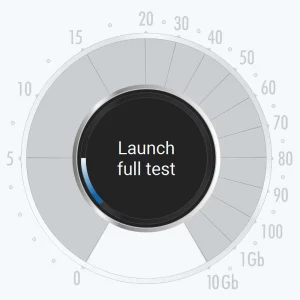Sponsored Links
Wi-Fi Alliance Seeks to Push Mobile Broadband Services Out of the Picture
Posted: 23rd Mar, 2011 By: MarkJ

 The WiFi Alliance, a non-profit international association formed in 1999 to certify interoperability of Wireless Local Area Network (WLAN) products, have "formalized a [new] set of industry market requirements" that will automatically prioritise public Wi-Fi hotspot connectivity over Mobile Broadband links when roaming outside of your home or office.
The WiFi Alliance, a non-profit international association formed in 1999 to certify interoperability of Wireless Local Area Network (WLAN) products, have "formalized a [new] set of industry market requirements" that will automatically prioritise public Wi-Fi hotspot connectivity over Mobile Broadband links when roaming outside of your home or office.Many modern Smartphone's already do something similar by allowing your device to switch onto a local Wi-Fi network when one is nearby. However, this requires some initial user interaction to manually select and setup the connection first. The new method would do all of that automatically.
The key benefits of the hotspot program include:The move makes sense when you consider that data volume over cellular networks is forecast to nearly double from 2011 to 2012, reaching 4.56 Million Terabytes. It's cheaper to pass data over Wi-Fi networks because they're usually connected to faster fixed line broadband ISPs.
* Network Discovery and Selection: Devices discover and automatically choose networks based upon user preferences, operator policies and network optimization
* Streamlined Network Access: In many cases, devices will be automatically granted access to the network based upon credential mechanisms, such as SIM cards, which are widely used in cellular devices today
* Immediate Account Provisioning: The process of establishing a new user account at the point of access will be streamlined, eliminating user steps and driving a common provisioning methodology across vendors
* WPA2™ Security: Over-the-air transmissions are encrypted using the latest-generation security technology
As a result many mobile and fixed line operators are investing heavily in Wi-Fi hotspot solutions. According to the alliance, the number of hotspots worldwide is expected to more than double by 2014 (currently there are approximately 750,000).
Kelly Davis-Felner, Marketing Director of the Wi-Fi Alliance, said:
"Ensuring end users can easily access hotspot networks from various providers is a win for subscribers, service providers and device makers alike. We envision an automated, cellular-like experience for Wi-Fi users around the world in security-protected service provider hotspots."
"Ensuring end users can easily access hotspot networks from various providers is a win for subscribers, service providers and device makers alike. We envision an automated, cellular-like experience for Wi-Fi users around the world in security-protected service provider hotspots."
However, despite the promise of strong security measures and careful hotspot selection, some people may not like the idea of their mobile device automatically switching to transmit sensitive personal data over more accessible and thus easier to abuse Wi-Fi connections. With any luck consumers will be given an option to switch such features off without having to totally disable their Wi-Fi in the process.
Search ISP News
Search ISP Listings
Search ISP Reviews
Latest UK ISP News








Cheap BIG ISPs for 100Mbps+
150,000+ Customers | View More ISPs
Cheapest ISPs for 100Mbps+
Modest Availability | View More ISPs
Latest UK ISP News
Helpful ISP Guides and Tips
Sponsored Links
The Top 15 Category Tags
- FTTP (6918)
- BT (3917)
- Politics (3120)
- Business (2822)
- Openreach (2703)
- Building Digital UK (2537)
- Mobile Broadband (2527)
- Statistics (2162)
- FTTC (2153)
- 4G (2132)
- Virgin Media (2067)
- Ofcom Regulation (1802)
- 5G (1783)
- Fibre Optic (1617)
- Wireless Internet (1615)
Sponsored
Copyright © 1999 to Present - ISPreview.co.uk - All Rights Reserved - Terms , Privacy and Cookie Policy , Links , Website Rules






























